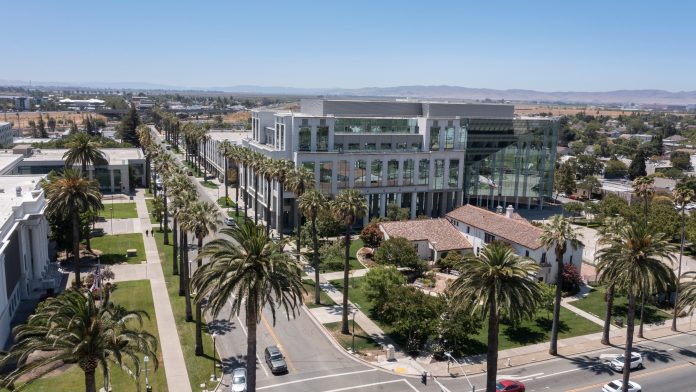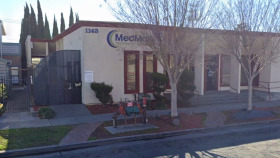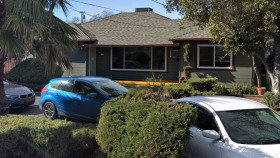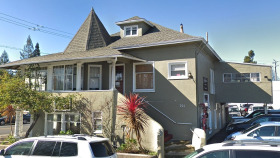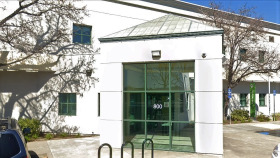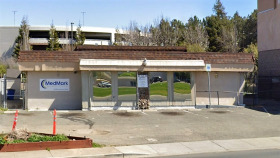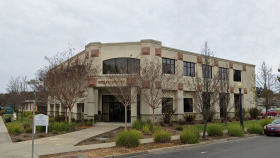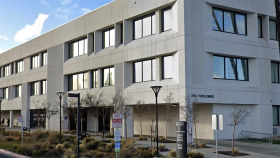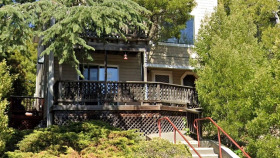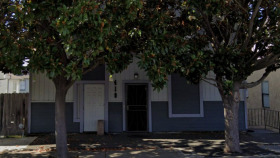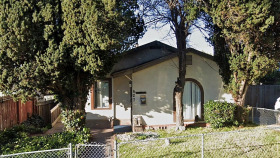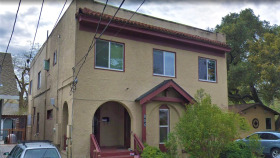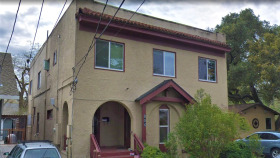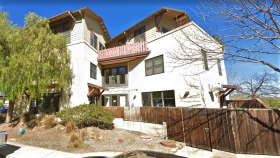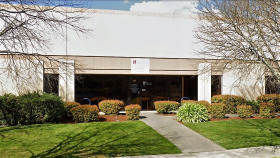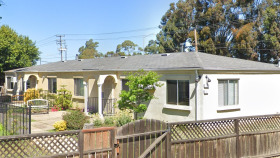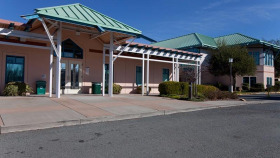Alcohol and Drug Stats in Fairfield, CA
Data collected by the Centers for Disease Control and Prevention and the California Department of Public Health highlights the following Solano County substance misuse statistics:1, 4, 5
Levels of Substance Abuse Care
Multiple levels of care exist for addiction treatment. Some California residents require all levels of care during their journey to recovery, while others receive only the less intensive options.
Medical Detox
Detox is the process of removing drugs or alcohol from your system, safely and comfortably, in a supervised medical setting. Many people choose a medical detox program to prevent severe withdrawal symptoms. This is often the first step in the treatment process, completed before transitioning into formal treatment services.
Inpatient Drug and Alcohol Rehab
Inpatient or residential treatment involves living at a rehab facility to receive 24/7 care. A combination of treatment interventions is provided, including individual and group therapy, nutritional counseling, and medication.
Partial hospitalization programs (PHPs): PHPs allow California residents to live at home while attending treatment at a hospital. They often receive many of the same treatment as inpatient care, but can return home during non-treatment hours.
Intensive Outpatient Programs (IOPs): A step down from a PHP, IOPs allow California residents to attend counseling several days each week, while spending the rest of their time at home, working, or fulfilling other obligations.
Standard Outpatient: As the least intensive treatment option, standard outpatient care is appropriate for California residents who are highly motivated and have a strong support system. It involves just one or two hours of treatment per week.
Relapse Prevention
Aftercare, or relapse prevention, provides ongoing support after a rehab program is complete. Aftercare may include 12-step groups, non-12-step groups like SMART Recovery, ongoing therapy, sober living homes, and more.
Paying for Alcohol and Drug Rehab in Fairfield, CA
Although the cost of treatment at Fairfield drug rehabs or alcohol rehabs might seem intimidating, most facilities offer multiple recovery program payment options. If you have a low income and no insurance, you may even be eligible for discounted or free treatment at various local rehab centers.
Free Treatment Programs Near Fairfield, CA
Treatment centers in and near Fairfield that may offer low-cost or free rehab programs include:
State-funded rehab centers: These recovery centers get subsidies and grants from federal and state sources. That funding allows them to provide treatment for patients with serious financial needs at little to no cost.
Methadone clinics:: These treatment centers provide medication-assisted treatment (MAT) for individuals with opioid-use disorders. Many facilities use a sliding fee scale or get public funding to offer low-cost or free services to financially eligible persons.
Sliding scale treatment programs: Fairfield drug rehabs that use a sliding fee scale will base your treatment costs on your income. You’ll only be charged what you can realistically afford to pay at these facilities. Some locations may even offer free treatment if you demonstrate serious financial need.
If you’re interested in getting free treatment at a drug or alcohol rehab in Fairfield, you have options. One or more of the following facilities within 25 miles of the city may be able to help you:7
- Napa County Health and Human Services (roughly 13 miles away in Napa)
- Bi-Bett Corporation (roughly 15 miles away in Vallejo)
- Genesis House (about 15 miles away in Vallejo)
- REACH Project (roughly 18 miles away in Pittsburg)
Paying for Treatment With Private Insurance
Thanks to the 2010 Affordable Care Act, most private insurers must offer coverage for addiction treatment services.7 So if you have a private health plan, it may pay for some or all of your treatment costs at various Fairfield alcohol rehabs and drug rehabs.
Within 25 miles of the city, you’ll find 17 facilities that take private insurance from several major providers. But keep in mind that your plan likely has a network that may not include some of these treatment centers. Your plan likely also has coverage limits and stipulations on the types and length of treatment it will pay for. If you’re unfamiliar with those details, you can call the number on the back of your insurance card to get a breakdown of your benefits.
Paying for Treatment With Medicare, Medicaid, and Other Public Health Plans
Medicare and California Medicaid (Medi-Cal) cover several outpatient and inpatient addiction treatment services deemed medically necessary by a licensed healthcare provider.8, 9 TRICARE military insurance also covers various inpatient and outpatient substance misuse treatment services.10
If you have one of these public health plans and need drug or alcohol rehab in Fairfield, here’s what you should know:6
- Four rehab centers in Fairfield and another 19 within 25 miles of the city take Medi-Cal.
- One treatment center in Fairfield and another 13 within 25 miles of the city take Medicare.
- One rehab facility in Fairfield and another five within 25 miles of the city take TRICARE.
If you are of Native American descent, you’ll also find three treatment centers near Fairfield that get funding from the Urban Indian Health Program. All of these facilities are located in Concord, approximately 19 miles from the city.6
Additional Fairfield Payment Options
Private Insurance
Every insurance provider in the U.S. is required by law to provide at least some coverage for mental health and substance abuse treatment. California residents should contact their provider to confirm specific coverage provided by their carrier, including applicable copays.
Medi-Cal
Medi-Cal is California’s Medicaid program. Funded by federal and state taxes, this program pays for medical services for children and adults who have limited income. To qualify for Medi-Cal, California residents must meet income requirements and be one of the following: pregnant, responsible for a child under 21 years old, blind, disabled or a disabled family member, or 65 years or older.
California Medicare
California Medicare is a government program providing coverage to residents who are over the age of 65 or who have end-stage renal disease. California residents can use Medicare to cover the cost of rehab and other addiction treatment services; however, not all rehabs accept Medicare insurance.
Sliding Scale Rehabs
Sliding scale rehabs charge what California residents can afford, based on their income. To qualify, residents typically need to provide proof of income and assets.
TRICARE in California
California TRICARE (West Region) is a government program that provides health insurance for military personnel, veterans, and their dependents. TRICARE coverage includes addiction treatment services, such as rehab and medication-assisted treatment.
State-Funded and Free Rehab in Fairfield, CA
For California residents who can’t afford treatment, state-funded and free rehab services may be available. These programs use government funding to pay for the treatment. To qualify, residents may be required to provide proof of income.
Sliding Scale Rehabs
Sliding scale rehabs offer income-based fees, meaning they charge only what a Florida resident can reasonably afford to pay. To qualify for a sliding scale rehab in Florida, residents typically are required to show proof of income.
IHS-Funded Drug Rehabs
Drug rehab programs funded by the Indian Health Service provide free addiction treatment to Alaskan Natives and Indigenous people in the U.S.
California Alcohol and Drug Laws
California laws include the following policies regarding substance abuse:1,2,3,4,5
California Employee Protections for Drug or Alcohol Rehab: California’s labor code requires employers with 25 or more employees to provide accommodation to staff who voluntarily choose to attend alcohol or drug rehab. This may include unpaid time off or use of sick or vacation time. Employees who wish to request time off for addiction treatment may be able to request it under the Family and Medical Leave Act or the California Family Rights Act.
Substance Abuse and Crime Prevention Act: This act provides treatment opportunities for individuals who are convicted of non-violent crimes. Eligible offenders may serve their time in drug treatment rather than in prison.
California Government Prevention and Care Services: Senate Bill 110 expanded these services to include contingency management (an incentivized treatment program) as a benefit covered under Medi-Cal. Patients who demonstrate substance-free behavior, such as drug-free urine tests, are rewarded with vouchers or gift cards.
California Ethical Treatment for Persons with Substance Use Disorder Act: This protects drug addiction treatment clients by requiring treatment providers to adopt a client bill of rights, to ensure all individuals receiving addiction care are treated with dignity, honesty, and respect.
California’s Good Samaritan Law: This law encourages California residents to call 9-1-1 if an overdose is suspected. It protects individuals who seek emergency medical care for overdose from legal repercussions for possession of a controlled substance/drug paraphernalia or providing alcohol to minors.
Traveling to and Within Fairfield, CA
 Are you thinking about traveling to a drug rehab in Fairfield? Do you want to visit a loved one who’s working through long-term recovery therapy in or near the city? Here’s what you should know about getting around Fairfield, along with a few fun things to do:
Are you thinking about traveling to a drug rehab in Fairfield? Do you want to visit a loved one who’s working through long-term recovery therapy in or near the city? Here’s what you should know about getting around Fairfield, along with a few fun things to do:
- Flying to Fairfield: Sacramento International is the closest major airport and is roughly 50 minutes away by car. Oakland International is about 55 miles from the city and 90 minutes away by car.
- Driving to and within Fairfield: Interstate 80 and State Highway 12 converge just a few miles outside the city. These routes connect Fairfield with the greater Bay Area, Sacramento, and other major transit routes leading all over the state.
- Lodging: You’ll find about a dozen 2- and 3-star hotels in Fairfield and several more 4- and 5-star hotels in the nearby Napa area.
- Public transit: Fairfield and Suisun Transit (FAST) operates fixed-route bus service via eight local and two commuter routes. Most areas of the city aren’t walkable or bikeable.
- Things to do: Take a self-guided tour of the Jelly Belly Candy Company, check out the American Armory Museum, or tour the Western Railway Museum. You’ll also find several public parks, various hiking routes in the nearby Rush Ranch Open Space, and two golf courses just north of the city.
Resources
- California Department of Public Health. (n.d.). California Overdose Surveillance Dashboard, Solano County Dashboard.
- California Department of Public Health. (2018, June 18). Naloxone Statewide Standing Order Frequently Asked Questions (FAQs).
- California Legislature. (2011, June 07). Assembly Bill 472.
- Centers for Disease Control and Prevention, National Center for Health Statistics. CDC Wonder Online Database. (2021). Underlying Cause of Death, 1999-2020 Results, Deaths occurring through 2020.
- Solano Public Health. (2019, February). Solano County Health Status Report.
- Substance Abuse and Mental Health Services Administration. (n.d.). FindTreatment.gov.
- Office of National Drug Policy. (n.d). Substance Abuse and the Affordable Care Act.
- Department of Health and Human Services, Centers for Medicare & Medicaid Services. (2016). Medicare Coverage of Substance Abuse Services.
- California Department of Health Care Services. (2016, August). Drug Medi-Cal (DMC) Title 22 Requirements.
- TRICARE. (2018, October 3). Covered Services, Substance Use Disorder Treatment.

